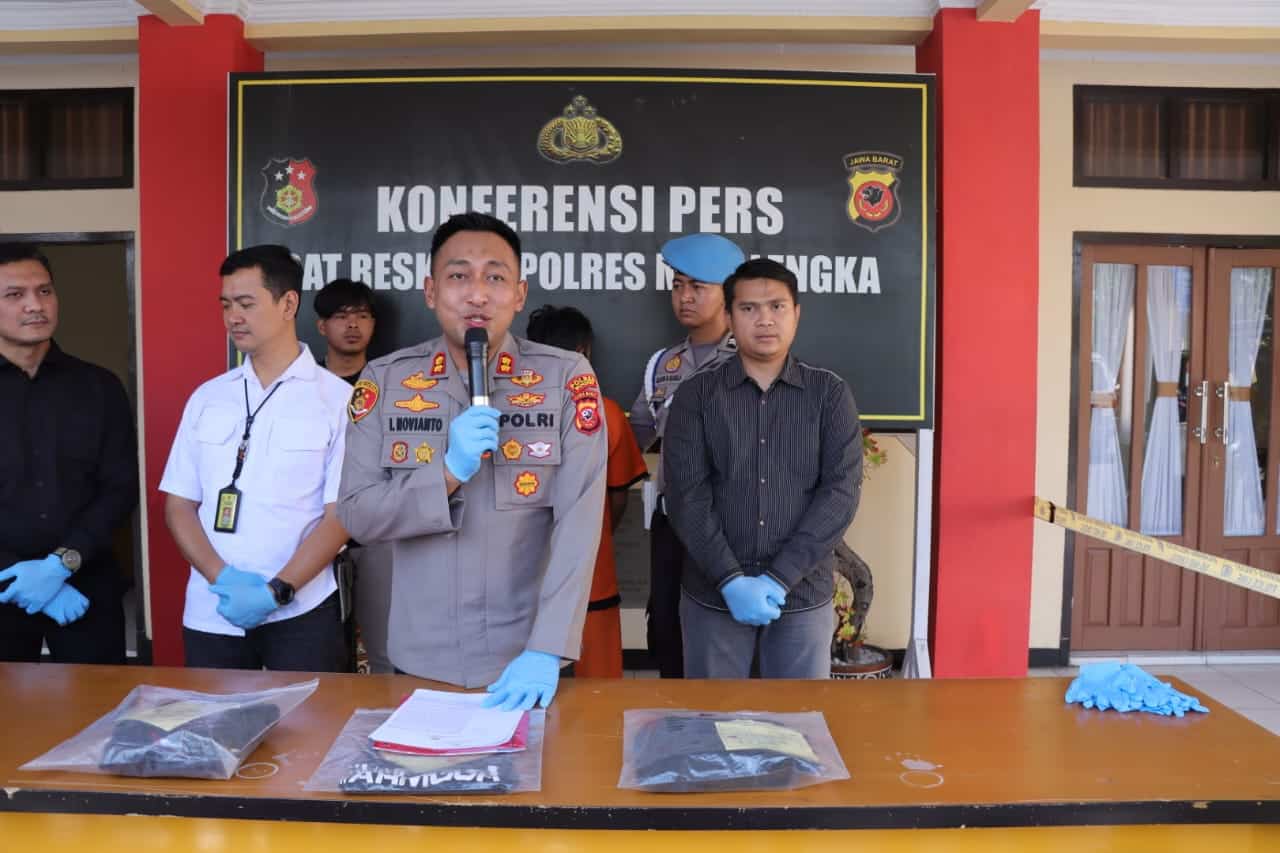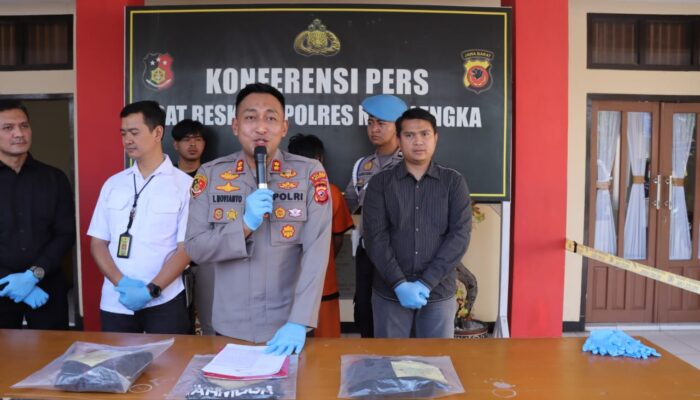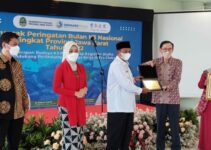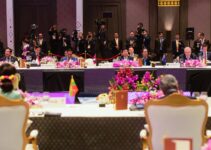Peran Media Dalam Pilkada Majalengka 2024 takes center stage, as the media’s influence on shaping public opinion and influencing voter behavior in the upcoming election becomes a crucial factor. This analysis delves into the intricate ways in which media coverage, across various platforms, impacted the Majalengka 2024 Pilkada.
From the dissemination of information and the formation of narratives to the strategies employed by candidates and the ethical considerations surrounding media coverage, this exploration sheds light on the complex role of media in this crucial political event.
The Majalengka 2024 Pilkada presents a unique opportunity to examine the interplay between media and public perception. With the rise of social media and its impact on political discourse, the traditional media landscape is undergoing a transformation. This analysis investigates the influence of various media platforms, including television, print, and social media, on voter preferences and how these platforms have become integral tools for candidates to reach voters and communicate their platforms.
By analyzing the media’s role in shaping public discourse around key campaign issues, this research provides valuable insights into the dynamics of the Pilkada and the potential impact of media on the election’s outcome.
Social media is playing a significant role in the Pilkada Majalengka 2024. Candidates are using platforms like Facebook and Twitter to connect with voters, while news outlets are using social media to report on the campaign.
The Role of Media in Shaping Public Opinion
The 2024 Pilkada in Majalengka will be a significant event, and the media will play a crucial role in shaping public opinion and influencing voter decisions. This article will delve into the multifaceted ways in which media coverage can impact the election, exploring how different platforms, narratives, and strategies influence voters’ perceptions of candidates and their priorities.
Media Coverage and Public Perception of Candidates
Media coverage can significantly influence public perception of candidates by highlighting their strengths, weaknesses, and campaign promises. Through news reports, interviews, and political analysis, media outlets can shape how voters understand and evaluate candidates. For example, positive coverage of a candidate’s policy proposals could enhance their image and increase voter support, while negative coverage of scandals or controversial statements could damage their reputation.
If you’re planning to witness the solar eclipse in Texas in October 2024 , make sure you know the path of totality. This will help you find the best spot to see the eclipse in its entirety.
Impact of Different Media Platforms
- Television:Television remains a powerful medium for reaching a wide audience and delivering impactful visuals. Candidates can use television debates and interviews to connect with voters and present their platforms. However, television coverage can also be susceptible to bias and manipulation, as networks often prioritize sensationalism over in-depth analysis.
- Print Media:Newspapers and magazines provide a platform for more detailed analysis and in-depth coverage of campaign issues. Print media can offer a nuanced perspective on candidates and their policies, allowing voters to make informed decisions. However, print media’s reach has declined in recent years, and it may struggle to engage younger audiences.
Maintaining neutrality is crucial for the TNI and Polri during the Pilkada Majalengka 2024. Their role is to ensure a fair and peaceful election process, and they must remain impartial throughout the campaign.
- Social Media:Social media platforms have become increasingly influential in political campaigns, providing candidates with a direct channel to communicate with voters. Social media allows candidates to share their messages, engage in discussions, and mobilize supporters. However, social media can also be a breeding ground for misinformation and fake news, posing a significant challenge to accurate and ethical political discourse.
The results of the Pilkada Majalengka 2024 will have significant implications for the future of the region. It’s important to analyze the results and understand the factors that contributed to the outcome.
Examples of Media Narratives Influencing Voter Behavior
- Candidate Image:Media narratives can focus on a candidate’s personal characteristics, such as their leadership skills, experience, or charisma. These narratives can influence voters’ perceptions of a candidate’s suitability for office, even if they are not directly related to policy positions.
The Goosebumps book covers for October 2024 are sure to be spooky and exciting, promising a thrilling read for fans of the series.
- Campaign Promises:Media coverage can emphasize specific campaign promises, highlighting their potential benefits or risks. This can influence voter priorities and shape their expectations of a candidate’s performance in office.
- Scandals and Controversies:Media coverage of scandals or controversies can significantly impact a candidate’s image and voter support. Negative coverage can erode trust and damage a candidate’s credibility, even if the allegations are not proven.
Media’s Influence on Campaign Strategies
Candidates are increasingly aware of the power of media in shaping public opinion and influencing voter decisions. As a result, they have adopted sophisticated media strategies to reach voters and communicate their platforms effectively. This section will explore how candidates utilize different media platforms and strategies to maximize their impact.
Utilizing Media to Reach Voters, Peran Media Dalam Pilkada Majalengka 2024

- Targeted Advertising:Candidates can use online advertising platforms to target specific demographics and interests, ensuring that their messages reach the right audience. This allows for more efficient and effective campaign spending.
- Social Media Engagement:Candidates actively engage with voters on social media platforms, responding to comments, sharing updates, and organizing online events. This allows for direct communication and a more personal connection with supporters.
- Media Partnerships:Candidates may partner with media outlets to secure favorable coverage and amplify their messages. This can involve sponsoring events, providing exclusive interviews, or collaborating on content.
Comparing Media Strategies
Candidates often employ different media strategies based on their resources, target audience, and campaign goals. Some candidates may prioritize traditional media, while others may focus on social media or digital platforms. The effectiveness of these strategies can vary depending on the specific context of the election.
International organizations are playing a critical role in the Israel-Hamas war in October 2024 , providing humanitarian aid and working to mediate a ceasefire. Their efforts are crucial to mitigating the humanitarian crisis and fostering peace in the region.
Key Media Messages
- Simplicity and Clarity:Candidates aim to communicate their messages in a clear and concise manner, using language that resonates with voters. They focus on key issues and avoid complex jargon.
- Emotional Appeal:Candidates often use emotional appeals to connect with voters on a personal level. They may highlight their personal stories, emphasize shared values, or evoke feelings of hope or fear.
- Positive Messaging:Candidates strive to present a positive and optimistic vision for the future, focusing on their plans to improve the community and address key issues.
Media Coverage of Campaign Issues
The media plays a vital role in informing the public about campaign issues and shaping the public discourse surrounding them. This section will examine the extent to which media coverage focuses on key issues impacting the Majalengka community and how this coverage influences voter priorities.
It’s crucial to prioritize safety when watching a solar eclipse. You can find a comprehensive list of safety precautions for watching a solar eclipse online, ensuring you enjoy this celestial event responsibly.
Focus on Key Issues
Media coverage of the Majalengka Pilkada should prioritize issues that are relevant and important to the community. This may include topics such as economic development, education, healthcare, infrastructure, and environmental protection. The media should provide in-depth analysis and coverage of these issues, allowing voters to understand the candidates’ positions and evaluate their proposals.
The upcoming Pilkada Majalengka 2024 is expected to have a significant impact on the future of the province. It’s important to stay informed about the candidates and their platforms, as well as the potential implications for the region.
Framing and Shaping Public Discourse
The media can influence public discourse by framing issues in specific ways. For example, media coverage of economic development might focus on job creation or investment opportunities, while coverage of education might emphasize access to quality schools or teacher training.
The candidates for Bupati Majalengka in 2024 have diverse backgrounds and visions for the future of the region. It’s important to consider their qualifications and platforms when making your decision.
These frames can influence voters’ perceptions of the issues and their priorities.
Influence on Voter Priorities
Media coverage of campaign issues can significantly influence voter priorities. By highlighting specific issues and framing them in particular ways, the media can shape voters’ understanding of the election’s stakes and their expectations of the candidates. This can influence their voting decisions and ultimately determine the election’s outcome.
The challenges to rebuilding Gaza after the Israel-Hamas war in October 2024 are immense. The conflict has caused widespread destruction, and the task of rebuilding will require significant resources and international cooperation.
The Impact of Social Media on the Pilkada: Peran Media Dalam Pilkada Majalengka 2024
Social media has become an integral part of political campaigns, transforming how candidates communicate with voters and how information is disseminated. This section will analyze the role of social media in spreading information, facilitating political engagement, and influencing voter behavior.
Spreading Information and Facilitating Engagement
- Information Dissemination:Social media platforms provide candidates with a direct channel to share their messages, campaign updates, and policy proposals with a wide audience. This allows for real-time communication and a more immediate connection with voters.
- Political Engagement:Social media platforms facilitate political engagement by allowing voters to interact with candidates, share their opinions, and mobilize support for specific causes. This can lead to increased voter participation and a more active political discourse.
Influence of Social Media Influencers and Online Communities
- Social Media Influencers:Social media influencers can have a significant impact on voter behavior, particularly among younger audiences. Their endorsements or criticisms of candidates can sway public opinion and influence voting decisions.
- Online Communities:Online communities and forums can provide a platform for political discussions and the exchange of information. These communities can influence voter opinions and mobilize support for specific candidates or causes.
Potential Risks and Benefits
- Misinformation and Fake News:Social media platforms can be susceptible to the spread of misinformation and fake news, which can distort public discourse and influence voter behavior. This poses a significant challenge to the integrity of the Pilkada.
- Echo Chambers:Social media algorithms can create echo chambers, where users are primarily exposed to information that confirms their existing beliefs. This can limit exposure to diverse perspectives and hinder informed decision-making.
- Increased Political Polarization:Social media can contribute to political polarization by facilitating the formation of online communities that reinforce partisan views and create a climate of hostility towards opposing viewpoints.
- Enhanced Voter Engagement:Social media can enhance voter engagement by providing a platform for political discussions, sharing information, and mobilizing support. This can lead to increased voter turnout and a more active citizenry.
- Direct Communication with Candidates:Social media platforms allow voters to directly communicate with candidates, ask questions, and share their concerns. This can foster a more transparent and responsive political system.
Media Ethics and Responsibilities in the Pilkada
Media coverage of the Pilkada carries significant ethical responsibilities, as it can influence public opinion and potentially impact the election’s outcome. This section will discuss the ethical considerations for media coverage and analyze how media outlets adhere to journalistic principles of accuracy, fairness, and objectivity.
Mark your calendars for the upcoming solar eclipse in October 2024. This celestial event will be a sight to behold, but it’s important to take proper safety precautions when viewing it.
Ethical Considerations
- Accuracy and Fairness:Media outlets should strive for accuracy and fairness in their reporting, presenting factual information and avoiding bias or distortion. They should provide a balanced perspective on campaign issues and avoid promoting the interests of any particular candidate.
- Objectivity and Neutrality:Media outlets should maintain objectivity and neutrality in their coverage, avoiding sensationalism or biased reporting. They should present information in a way that allows voters to make informed decisions based on facts, not emotions.
- Transparency and Accountability:Media outlets should be transparent about their sources and methods, allowing readers to evaluate the credibility of their reporting. They should also be accountable for any errors or omissions in their coverage.
Adherence to Journalistic Principles
Media outlets should adhere to established journalistic principles, such as the Society of Professional Journalists’ Code of Ethics, which emphasizes truthfulness, accuracy, independence, fairness, and accountability. These principles provide a framework for ethical media coverage and ensure that the public receives reliable and unbiased information.
Looking for a new tablet? Check out our list of Android tablets on sale in 2024. We’ve got deals on all the latest models, so you can find the perfect one for your needs.
Examples of Media Practices Influencing the Election
- Sensationalized Headlines:Sensationalized headlines can create a false impression of a candidate’s performance or character, influencing voter perceptions and potentially swaying the election’s outcome.
- Selective Reporting:Media outlets may selectively report on information that favors a particular candidate, while downplaying or ignoring information that is unfavorable. This can create a biased narrative and influence voter decisions.
- Opinion Pieces and Endorsements:Opinion pieces and endorsements can be influential, particularly when they are presented as factual reporting. Media outlets should clearly distinguish between opinion and news, ensuring that readers understand the context of the information they are consuming.
Final Review
The Majalengka 2024 Pilkada highlights the crucial role of media in shaping public opinion and influencing voter behavior. From the way candidates leverage different platforms to reach voters to the ethical considerations surrounding media coverage, this election underscores the complex relationship between media and the political landscape.
Get ready for the season! You can find the full NFL Week 1 schedule for October 2024 online, so you can mark your calendars and prepare for the excitement of the upcoming season.
The analysis reveals how media coverage can both inform and influence voters, while also raising questions about the responsibilities and potential biases of media outlets. Ultimately, the media’s role in the Pilkada serves as a reminder of the importance of critical media consumption and the need for responsible journalism in a democratic society.
FAQ Insights
What are the key ethical considerations for media coverage of the Pilkada?
With the NFL season kicking off in October 2024 , there are plenty of exciting games to look forward to. Be sure to check out the schedule and catch your favorite team in action.
Media coverage of the Pilkada should adhere to journalistic principles of accuracy, fairness, and objectivity. It is essential for media outlets to avoid bias, present information in a balanced manner, and ensure that reporting is based on factual evidence.
How can voters navigate the vast amount of information available through different media platforms?
Voters should be critical consumers of media, verifying information from multiple sources and considering the potential biases of different media outlets. It is also important to be aware of the potential for misinformation and disinformation on social media platforms.
What are the potential risks and benefits of social media’s role in the Pilkada?
Social media can provide a platform for political engagement and the dissemination of information. However, it also presents risks of misinformation, echo chambers, and the potential for manipulation of public opinion.









